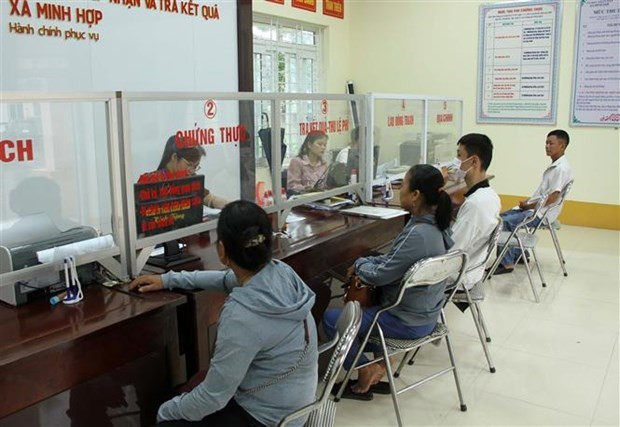In case there is a Party disciplinary decision, the effectiveness of the administrative disciplinary decision is calculated from the date the Party disciplinary decision takes effect.

The Government has just issued Decree 71/2023/ND-CP amending and supplementing a number of articles of Decree No. 112/2020/ND-CP dated September 18, 2020 on disciplinary action against cadres, civil servants and public employees.
Disciplinary decisions are effective for 12 months.
Regarding the principles of disciplinary action, the decree adds a provision: Decisions on disciplinary action against cadres, civil servants and public employees are effective for 12 months from the effective date. In cases of disciplinary action in the form of reprimand, warning, demotion or dismissal, the planning, appointment to higher positions and arrangement of cadre work shall be effective according to the regulations of the competent authority.
In case there is a decision on Party discipline, the effectiveness of the decision on administrative discipline is calculated from the date the decision on Party discipline takes effect. During this period, if there is no further violation of the law to the extent that disciplinary action is required, the decision on disciplinary action will automatically cease to be effective without the need for a document on the termination of validity.
In case a cadre, civil servant or public employee continues to commit a violation to the extent of being subject to disciplinary action during the period of execution of the disciplinary decision, the action shall be taken in accordance with the provisions of Clause 3, Article 2 of this Decree.
The disciplinary decision currently in effect ceases to be effective from the time the disciplinary decision for the new violation of the law takes effect. Documents related to disciplinary action and disciplinary decisions must be kept in the personnel file of the cadre, civil servant, and public employee. The form of discipline must be recorded in the personnel file of the cadre, civil servant, and public employee.
If an officer, civil servant or public employee commits a violation during his/her working period at the old agency, organization or unit and is discovered when he/she is transferred to a new agency, organization or unit and the violation is still within the statute of limitations for disciplinary action, the competent authority of the new agency, organization or unit shall consider disciplinary action and apply disciplinary measures according to the provisions of law corresponding to the position the officer, civil servant or public employee is currently holding.
In this case, the old agency, organization or unit is responsible for providing all documents related to the violation and assigning a person to coordinate in the process of reviewing and handling the discipline. Regulations on quality assessment, classification and other relevant regulations are calculated at the old unit.
The Decree stipulates: It is not allowed to appoint a wife, husband, biological father, biological mother; father, mother (wife or husband), adoptive father, adoptive mother; biological child, adopted child; biological brother, sister, sibling; aunt, uncle, biological uncle; biological brother, sister of the wife or husband; spouse of a biological brother, sister, or person with rights and obligations related to the violation being considered for disciplinary action as a member of the Disciplinary Council or as the chair of the review meeting.
Administrative discipline is commensurate with Party discipline.
The Decree also amends Clauses 1, 2, 4 and 6 of Article 2 on disciplinary principles.
Specifically, disciplinary action must ensure objectivity, fairness; publicity, strictness; accuracy, timeliness; correct authority, order and procedures.
Each violation shall be handled only once with one form of discipline. At the same time of disciplinary consideration, if an officer, civil servant or public employee commits two or more violations, each violation shall be considered and concluded and a general decision shall be made on the highest form corresponding to the violation.

When considering disciplinary action, it is necessary to base on the content, motive, nature, level, consequences, cause of the violation, specific circumstances; aggravating and mitigating circumstances; attitude of acceptance and correction; overcoming shortcomings, violations, and consequences; other cases according to Party regulations and the law are considered as the basis for considering exemption from discipline or reduction of responsibility.
Within 30 days from the date of announcement of the Party disciplinary decision, the agency, organization or unit must carry out the administrative disciplinary process (if any) for cadres, civil servants and public employees subject to Party disciplinary action, except in cases where disciplinary action has not yet been considered as prescribed in Article 3 of this Decree.
The form of administrative discipline must be commensurate with Party discipline. In case of being subject to the highest form of Party discipline, the organization and personnel advisory body shall report to the competent authority for disciplinary action to consider and decide on the highest form of administrative discipline if it falls under one of the cases specified in Articles 13, 14 and 19 of this Decree.
If not falling under one of the above cases, report to the competent authority to decide on disciplinary action in the form of dismissal for cadres, civil servants, and public employees holding leadership or management positions; salary reduction for civil servants not holding leadership or management positions or warning for public employees not holding management positions.
In case there are still different opinions on determining the form of administrative discipline commensurate with the highest form of Party disciplinary action, the competent authority shall decide to establish a Disciplinary Council to advise; consult the written opinion of the Party organization that decides on Party member disciplinary action before making a decision.
In case of change in the form of Party disciplinary action, the form of administrative disciplinary action must be changed accordingly. The time spent on the old disciplinary action decision shall be deducted from the time spent on the new disciplinary action decision (if any). In case the competent Party authority decides to abolish the Party disciplinary action decision, the competent administrative disciplinary authority must issue a decision to annul the administrative disciplinary action decision.
According to VNA